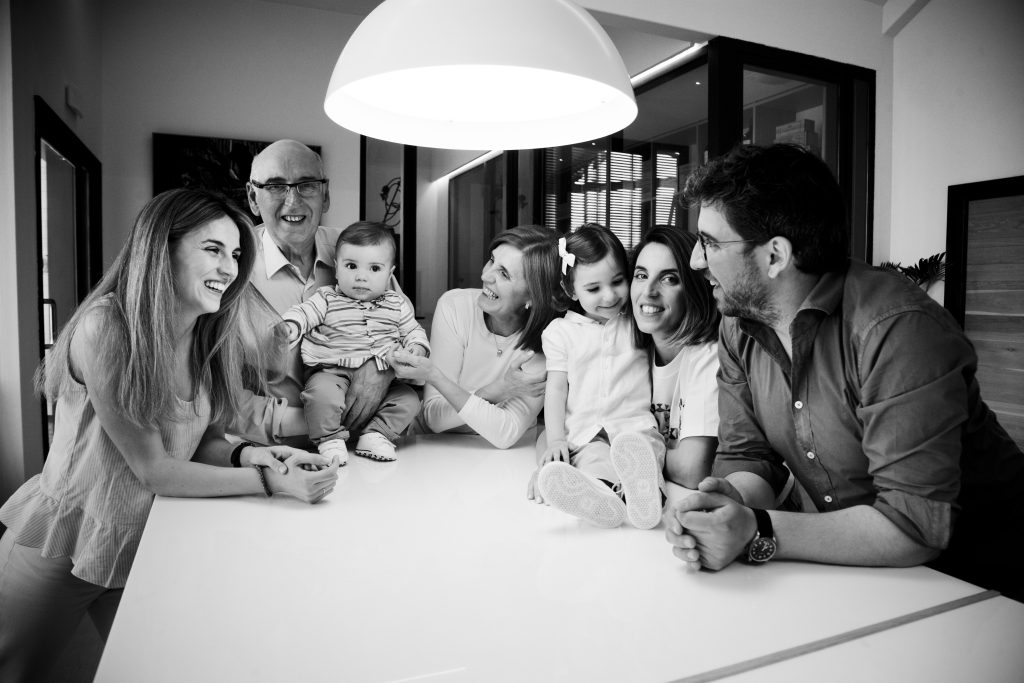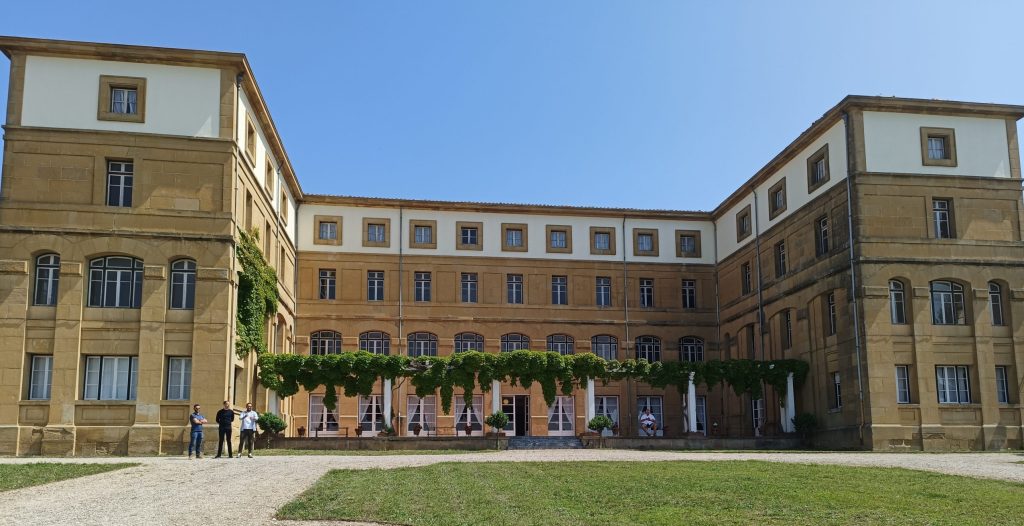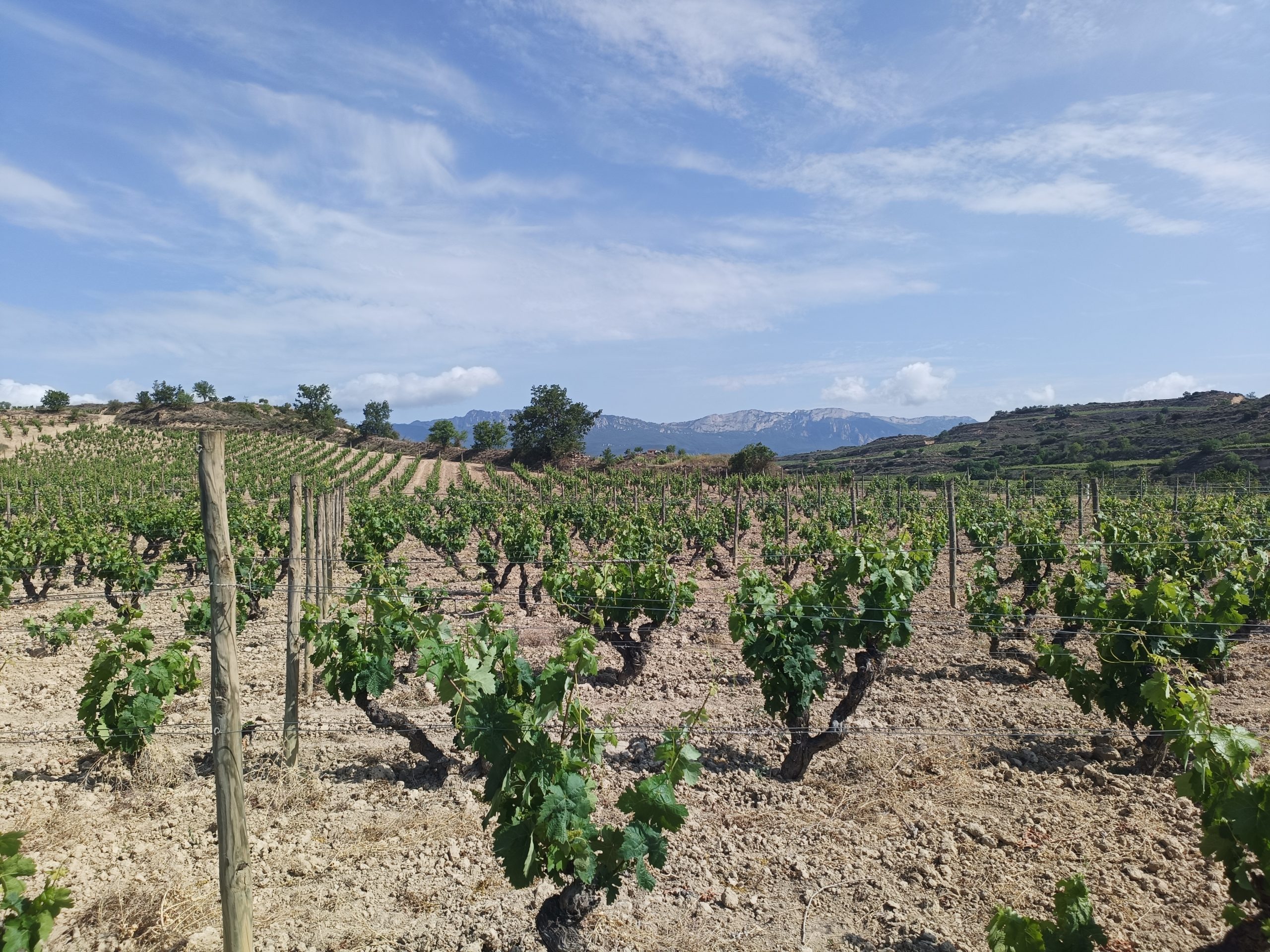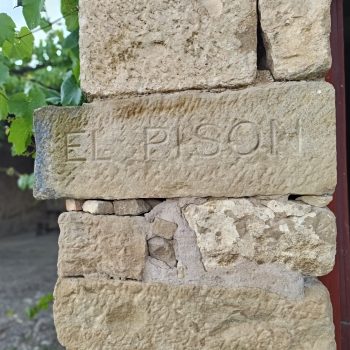This website uses cookies so that we can provide you with the best user experience possible. Cookie information is stored in your browser and performs functions such as recognising you when you return to our website and helping our team to understand which sections of the website you find most interesting and useful.
Artadi on why growing organically is key to expressing terroir
Having withdrawn from the Rioja DO in 2015, fine wine producer Artadi has built its reputation outside the DO for its organic fruit-driven wines that focus on expressing the terroir. Arabella Mileham talks to the López de Lacalle family about their minimal-intervention approach to ‘honest’ viticulture.

Walking through the vineyards of Bodegas y Viñedos Artadi, outside Laguardia, in Rioja Alavesa, you can’t miss the philosophy behind the estate’s outstanding wines.
The family-run winery is an anomaly in the famous Spanish region, having withdrawn from the Rioja DO in 2015. Since then it has continued to concentrate on its terroir-driven wines from single-vineyard plots that have been farmed organically and to biodynamic principles since 2002 (holding organic certification from 2016).
Artadi was founded in 1985 by fourth-generation winemaker Juan Carlos López de Lacalle as a co-operative with other growers among well-sited vineyards between Laguardia and Elvillar de Alava, but in 1992 the Lacalle and Laorden family bought the bodega and 56 hectares of Tempranillo and Viura vineyards, and set about introducing a new philosophy and style of winemaking.
Within 10 years, the estate had converted to organic production, a guiding philosophy ever since.

Sales and export manager Ana Isabel Rodríguez, who has been with the company for 27 years, admits that while it was hard to withdraw from the DO, as the estate is firmly rooted in Rioja Alavesa, it made sense for the company’s future. This was not only because of the size of the DOCa – which stretches 75 miles from north-west to south-east, covering a multitude of different micro-climates and soils – but also because its classification system concentrates on the maturation of wines rather than the terroir-focus Artadi focuses on (although the DOCa has since introduced new geographical categories, such as ‘Viñedos Singulares’ and ‘Vino de Municipio’ that Rodríguez calls “the first step”).
Moving out of the classification has made people – especially young wine producers – think, she says. However it will take time for them to understand what the possibilities are for the region, and what makes Artadi’s focus on terroir and organic production different.
“It takes time, step by step, but we think it’s going to be part of the future of this region,” she says. “If you want to get the profile and character of the wine, the honest wines, then growing grapes organically is a must.”
As López de Lacalle pointed out at the 2022 vintage en primeur tasting at the winery in May, its wines “don’t need to be better, they just need to be different, they need to express themselves”.
He said: “We want people to enjoy the difference, the diversity and biodiversity created by nature.”

Consultant agronomist Julián Palacios, technical director at Viticultura Viva, who is working closely with Artadi, explained the concept as “honest viticulture” – the expression of a unique landscape, terroir and origin that brings the soils, vines, and climate into a natural balance.
“This concept of terroir is key to understanding viticulture,” Palacios explained. “Soil is fundamental and managing the organic matter is paramount.”
The team sees itself as a part of the living environment. Grass cover in winter encourages micro-organisms, while respecting the structure of the soil without rotavators encourages “living soils” that ensure greater resilience against droughts or soil erosion caused by rainstorms. In some vineyards, such as its flagship El Pison vineyard, planted by Juan Carlos’s grandfather Jenaro San Pedro in 1945, fruit trees and roses have been planted as an early alert system for pests.
This approach is expensive though, and requires more intervention and care in the vineyard than growers who “take shortcuts” in order to “maximise yields and reduce costs”, Palacios says.
Winegrowing and oenology is about “looking a lot but not touching a lot,” López de Lacalle agrees. Here, advances in meteorology have been a technological revolution. Reliable forecasting and accurate recording allows the team to anticipate climatic events, and make decisions “as early as possible”, such as deciding when to green prune, or use permitted organic treatments.
Minimal intervention

The wine itself is also made with minimal intervention, but the techniques have evolved over time, as Carlos López de Lacalle, winemaker and Juan Carlos’s son, explains. Carlos took over the day-to-day running of the business with his sisters, Marian, head of marketing, and Patricia, CEO.
“We preserve a lot of fruit, a lot of primary aromas,” Carlos says, noting that the use of new French oak had decreased significantly in the past 20 years (from 100% to 20%) along with a shift to larger oak barrels of 300 litres to 500 litres (traditionally 225-litre oak barrels are used in Rioja). The wines are aged for eight to 10 months, allowing the Tempranillo to show its eloquence.
“We are always trying to maintain the fruit aspect, as that is our signature at Artadi, but we want to let the wines evolve,” he explains. “In English, you say ‘ageing’ the wine, but the word used by French winemakers is ‘élevage’ which means ‘raising’, as you would a child.”
Tempranillo is a grape variety that tends to have a long ageing capacity, but Carlos doesn’t like to say when a wine will reach its ‘peak’. However, Artadi’s wines, which include two Viñas de Gain (blanco from Viura and tinto from Tempranillo), and the single-vineyard expressions La Hoya, Quintanilla, and Poza de Ballesteros in Elvillar and Valdegines, San Lazaro, El Carretil and flagship El Pison– really shine after at least 10 years in the bottle.

